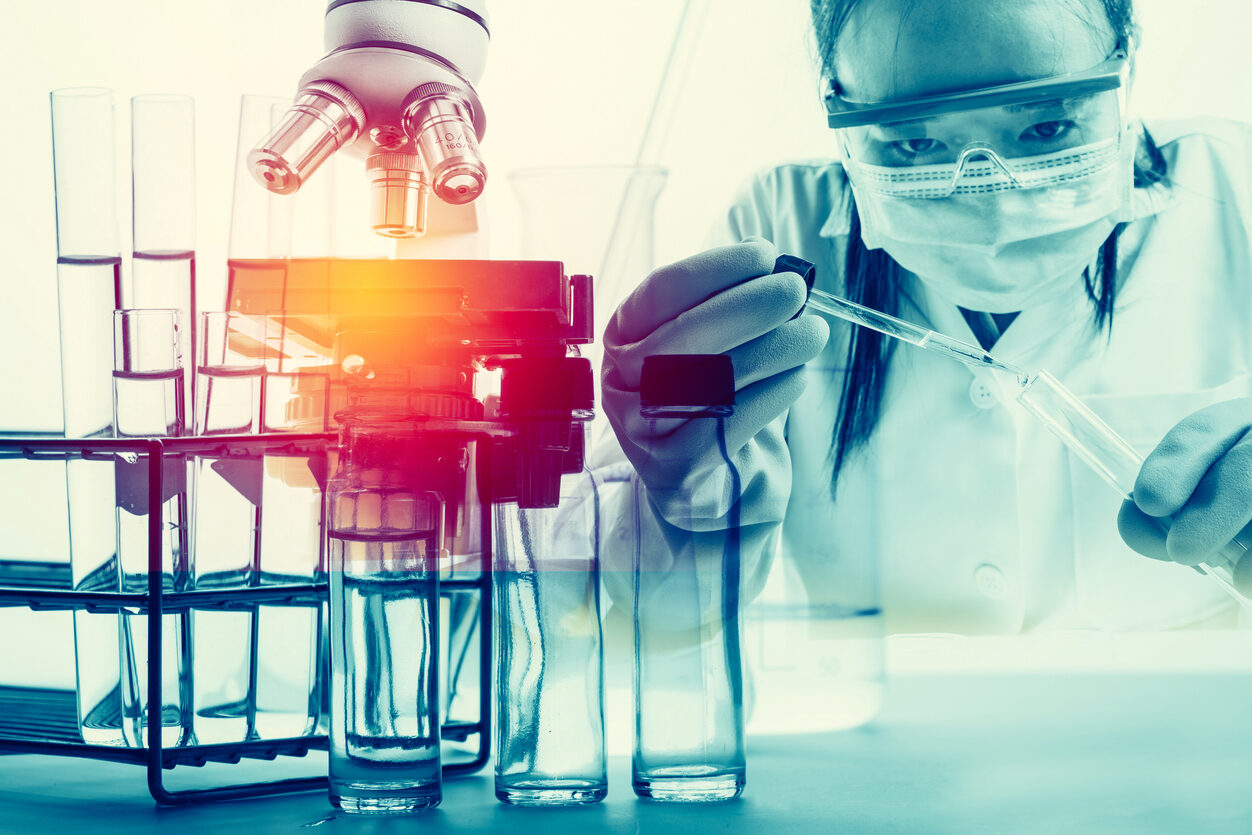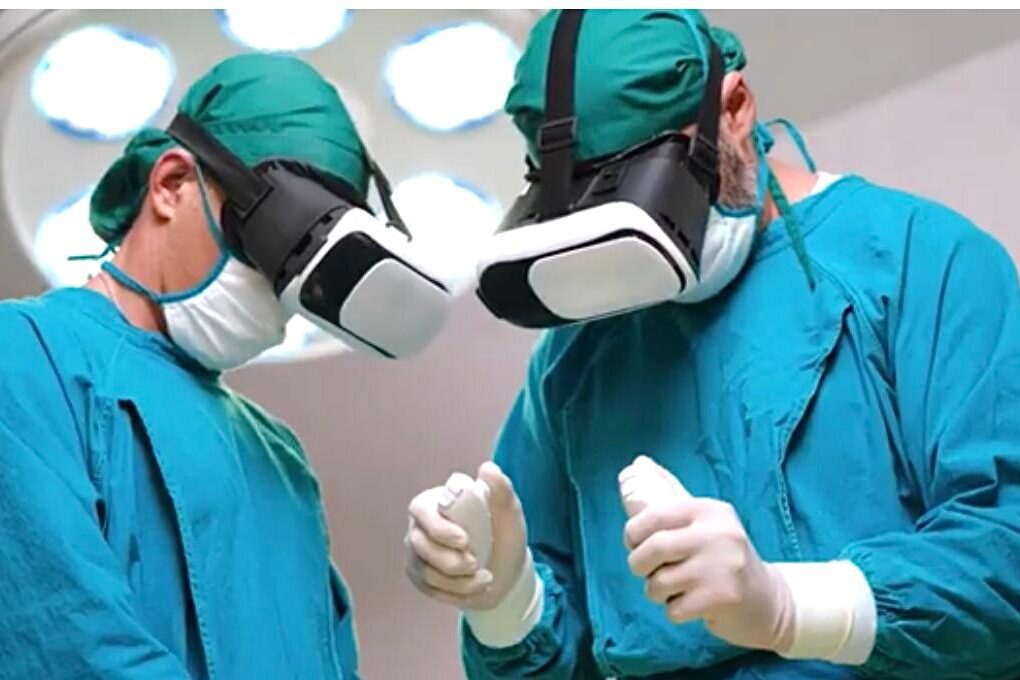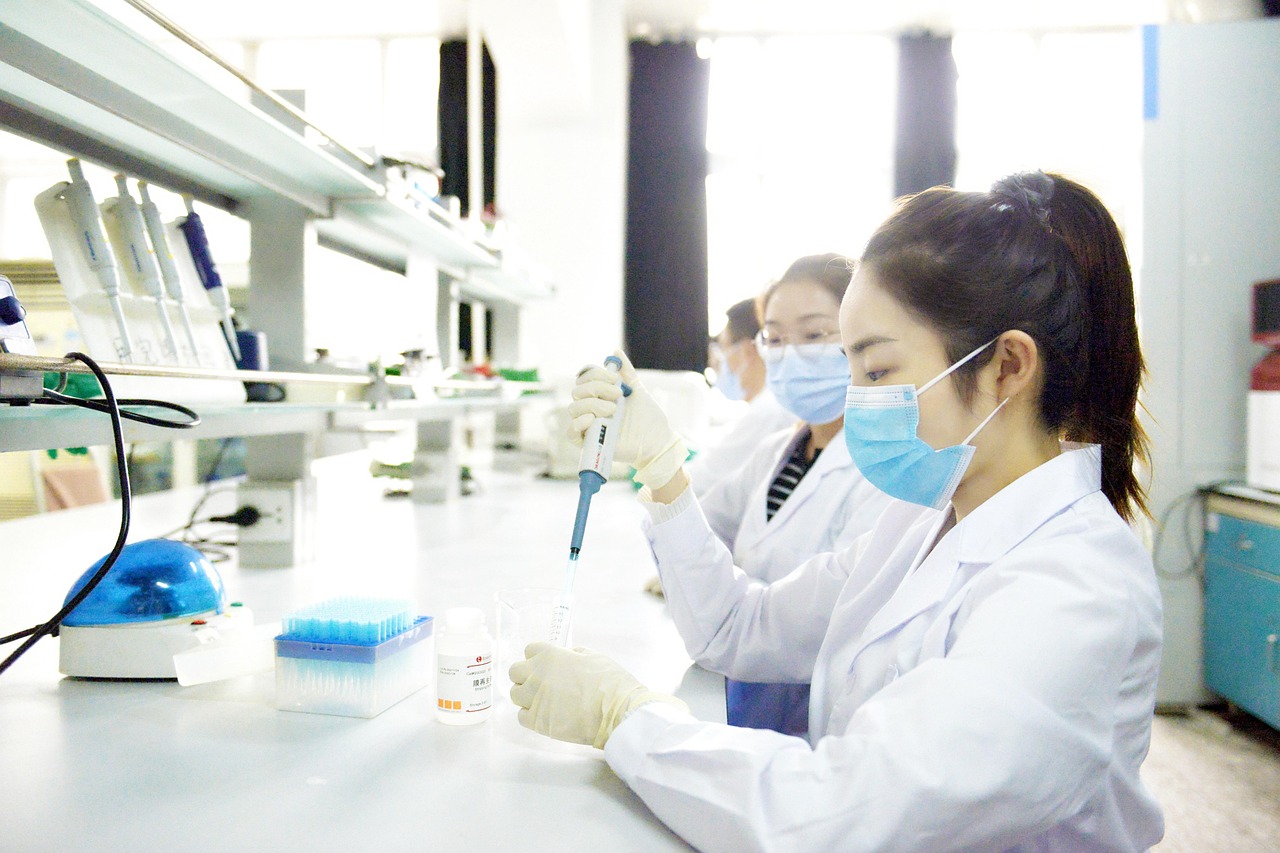1. Revolutionizing Diagnostics with AI

For decades, medical diagnostics relied on human expertise, intuition, and time-consuming tests. While skilled doctors and specialists have saved countless lives, human limitations—such as fatigue, oversight, and the sheer complexity of diseases—have left gaps in early detection and accurate diagnosis. Enter artificial intelligence: a game-changer in the medical world. AI isn’t here to replace doctors; it’s here to revolutionize how they diagnose, detect, and treat diseases with unparalleled speed and precision. Imagine a world where AI-powered algorithms analyze medical images in seconds, catching the earliest signs of cancer before symptoms even appear. Picture an intelligent system that cross-references millions of patient records to suggest the most effective treatments, tailored to an individual’s genetic makeup.
AI is transforming the way diseases are diagnosed by leveraging advanced machine learning algorithms and medical imaging technologies. For example, AI tools like Google’s DeepMind and IBM Watson can analyze X-rays, MRIs, and CT scans with remarkable speed and accuracy. These systems are capable of detecting subtle patterns that might elude even experienced radiologists, leading to earlier and more accurate diagnoses. This is particularly impactful in identifying conditions like cancer, heart disease, and neurological disorders, where early detection can significantly improve patient outcomes. AI’s ability to process vast amounts of data also reduces the likelihood of misdiagnoses, ensuring that patients receive timely and appropriate care. But revolutionizing diagnostics with AI isn’t just about speed; it’s about accuracy and accessibility.
2. Personalized Medicine: Tailoring Treatments to Individuals

For years, medicine has followed a one-size-fits-all approach—prescribing the same treatments for patients with the same conditions, even though no two people are exactly alike. But what if healthcare could be tailored to each individual, considering their genetic makeup, lifestyle, and unique biology? This is the promise of personalized medicine, a revolutionary shift that is turning medical treatment into something far more precise and effective. Instead of relying solely on broad guidelines, doctors can now use advanced genetic testing, AI-driven analytics, and detailed patient data to determine the best possible course of treatment. Imagine a cancer therapy designed specifically for your DNA, minimizing harmful side effects while maximizing effectiveness. Or a medication dosage adjusted to your metabolism, ensuring it works exactly as intended.
AI is at the forefront of personalized medicine, a revolutionary approach that tailors treatments to the unique needs of each patient. By analyzing genetic information, lifestyle factors, and medical histories, AI can predict how individuals will respond to specific treatments. This minimizes the trial-and-error process often associated with traditional medicine, reducing side effects and improving the effectiveness of therapies. For instance, AI-driven platforms can recommend the most suitable cancer treatments based on a patient’s genetic profile, ensuring a more targeted and efficient approach to care. The impact of personalized medicine is already being felt in fields like oncology, cardiology, and neurology, where targeted therapies are improving survival rates and quality of life.
3. Accelerating Drug Discovery and Development

Drug discovery has been a slow, expensive, and often uncertain process. Developing a single drug can take over a decade and cost billions of dollars, with many potential treatments failing in clinical trials. But artificial intelligence is changing everything.The process of developing new drugs is notoriously time-consuming and expensive, often taking years and billions of dollars. AI is streamlining this process by identifying promising compounds and predicting their effectiveness in treating specific conditions. Machine learning algorithms can analyze vast datasets to uncover potential drug candidates, predict side effects, and even simulate clinical trials.
AI-driven drug discovery is already making a real-world impact. During the COVID-19 pandemic, AI helped researchers identify potential treatments in record time, proving that technology can dramatically speed up response times in a health crisis. Pharmaceutical companies are now using machine learning to design personalized cancer drugs, tailor antibiotics to combat superbugs, and even find treatments for rare diseases that were once overlooked. But as promising as AI is, challenges remain—ensuring data accuracy, navigating regulatory approval, and addressing ethical concerns about AI’s role in medicine. Still, the potential is undeniable. AI isn’t just making drug development faster—it’s making it smarter, safer, and more precise.
4. Enhancing Predictive Analytics for Patient Care

AI is revolutionizing predictive analytics in healthcare, enabling providers to anticipate and prevent medical issues before they arise. By analyzing patient data, such as electronic health records (EHRs), lab results, and lifestyle information, AI can identify patterns and risk factors that may lead to future health problems. For example, AI algorithms can predict the likelihood of a patient developing chronic conditions like diabetes or heart disease, allowing healthcare professionals to intervene early and implement preventive measures. This proactive approach not only improves patient outcomes but also reduces healthcare costs by minimizing the need for costly treatments and hospitalizations.
SoAI is also making significant strides in streamlining administrative tasks within healthcare systems. Routine tasks, such as scheduling appointments, processing insurance claims, and managing patient records, can be time-consuming and prone to errors. AI-powered tools can automate these processes, freeing up valuable time for healthcare providers to focus on patient care. For instance, natural language processing (NLP) algorithms can transcribe and organize medical notes, ensuring that critical information is easily accessible and accurately documented. This increased efficiency reduces administrative burdens and enhances the overall patient experience.
5. AI Automation in Pediatrics

AI automation is revolutionizing pediatric care by enhancing diagnostic accuracy and streamlining administrative tasks. For instance, AI-powered tools can analyze medical images like X-rays and MRIs with remarkable precision, helping doctors detect conditions such as fractures or congenital abnormalities early on. This not only improves treatment outcomes but also reduces the emotional and financial burden on families. Hospitals are also using AI to predict patient deterioration, enabling timely interventions that save lives.
In addition, AI is being employed to personalize care by analyzing a child’s unique health data, ensuring treatments are tailored to their specific needs. These advancements are particularly impactful in pediatrics, where early and accurate diagnosis can significantly improve a child’s quality of life.AI is aiding in medical research by streamlining the process of identifying clinical trial participants, thereby accelerating the development of new treatments. These innovations are not just about technology; they are about creating a more efficient, compassionate healthcare system for children.
6. Improving Telemedicine and Remote Monitoring

Seeing a doctor meant scheduling an appointment, sitting in a waiting room, and relying on brief in-person visits to manage health concerns. But what if quality healthcare didn’t require a trip to the doctor’s office? Telemedicine and remote monitoring are revolutionizing how patients receive care, making it more convenient, accessible, and proactive than ever before. With virtual consultations, patients can now speak to doctors from the comfort of their homes, reducing travel time and eliminating barriers for those in rural or underserved areas. Wearable devices and smart health trackers are continuously monitoring vital signs, alerting doctors to issues before they become serious.
The rise of telemedicine has been accelerated by AI, which enhances remote consultations and monitoring capabilities. AI-powered chatbots and virtual assistants can provide patients with immediate responses to their health-related queries, triage symptoms, and recommend appropriate actions. Additionally, AI algorithms can analyze data from wearable devices, such as heart rate monitors and glucose sensors, to track patients’ health in real-time. This continuous monitoring allows healthcare providers to detect potential issues early and intervene promptly, even from a distance. Mental health support is more accessible than ever, with therapy and counseling available via video calls, reducing stigma and increasing treatment options. Of course, challenges like data privacy, insurance coverage, and ensuring technology reaches all populations must still be addressed. But the future of healthcare is clear: telemedicine isn’t just an alternative—it’s becoming the standard.
7. Enhancing Surgical Precision: Having Technology and Human Skill Unite in the Operating Room

Surgery has always demanded precision, steady hands, and years of training to master. Even the most skilled surgeons face limitations—fatigue, human error, and the sheer complexity of the human body. But artificial intelligence is changing that, transforming surgery into a field where precision is no longer just dependent on human ability. AI is revolutionizing the field of surgery by enhancing precision and outcomes. Robotic surgical systems, powered by AI, can perform complex procedures with greater accuracy than human hands alone. These systems use advanced imaging and machine learning algorithms to guide surgeons in real-time, ensuring that every movement is precise and minimizing the risk of complications.
AI also assists in preoperative planning by analyzing patient data to predict potential challenges and optimize surgical approaches. This integration of AI in surgery leads to shorter recovery times, reduced pain, and better overall patient outcomes. But as with any technological revolution, challenges remain—integrating AI into traditional surgical training, addressing ethical concerns, and ensuring accessibility to advanced robotic systems. Still, the direction is clear: AI is not replacing human expertise but refining it, reducing surgical risks, and opening new possibilities for patients and doctors alike. The future of surgery isn’t just about human hands—it’s about human hands guided by intelligent, data-driven precision, ensuring safer, more effective outcomes for every patient on the operating table.
8. Supporting Mental Health Care

Mental health care has been plagued by long wait times, stigma, and a shortage of qualified professionals. Many people struggling with anxiety, depression, or trauma never seek help simply because they don’t know where to start. But artificial intelligence is changing that, offering new ways to support mental well-being in a world that desperately needs it. AI is making significant strides in the realm of mental health care by providing accessible and personalized support. AI-driven chatbots and virtual therapists offer immediate assistance to individuals experiencing mental health issues, providing coping strategies and resources. These tools can analyze users’ language and behavior to detect signs of distress, enabling timely interventions.
Additionally, AI algorithms can predict mental health crises by monitoring patterns in patients’ data, such as changes in sleep or communication patterns. Wearable devices track sleep patterns, heart rate variability, and stress levels, giving real-time insights into emotional well-being. Personalized therapy recommendations based on data-driven insights are improving treatment outcomes, ensuring that people receive the right care at the right time. Of course, ethical concerns remain—privacy, data security, and the potential for misinterpretation of emotions by AI require careful oversight. But the potential is undeniable. AI isn’t here to replace the human connection that’s so vital in therapy; it’s here to enhance it, ensuring that no one has to struggle alone.
9. Optimizing Hospital Operations

Hospitals are meant to be places of healing, but behind the scenes, they often operate in a state of controlled chaos. Overcrowded emergency rooms, staff shortages, misplaced medical records, and inefficient resource allocation can slow down patient care and even put lives at risk. But artificial intelligence is changing the game, turning hospitals into smarter, more efficient systems that prioritize patient well-being. AI-driven scheduling tools are reducing wait times by predicting patient flow, ensuring that doctors and nurses are deployed where they’re needed most. AI is transforming hospital operations by optimizing resource allocation and improving efficiency. Predictive analytics can forecast patient admissions and discharges, helping hospitals manage bed occupancy and staffing levels more effectively.
AI can enhance patient flow by identifying bottlenecks in the hospital workflow and suggesting improvements. The impact of AI in hospital operations goes beyond logistics. Predictive analytics are helping hospitals anticipate surges in patient volume, allowing them to prepare for flu seasons, pandemics, or unexpected emergencies. AI-powered diagnostics are reducing unnecessary hospitalizations by identifying which patients truly need immediate care and which can be monitored remotely. Robotic process automation is handling paperwork and billing, minimizing human errors and financial inefficiencies. These advancements result in reduced wait times, better resource utilization, and enhanced patient satisfaction. While challenges exist—such as data security, the cost of AI implementation, and the need for seamless integration with existing hospital systems—the benefits far outweigh the hurdles.
10. Facilitating Clinical Research

Clinical research has always been the foundation of medical progress, but it’s a slow and resource-intensive process. Finding the right participants, analyzing massive datasets, and conducting lengthy trials can take years—sometimes decades—before a new treatment reaches patients. But artificial intelligence is transforming the way clinical research is conducted, accelerating the pace of discovery like never before. AI is playing a crucial role in advancing clinical research by analyzing vast amounts of data and identifying trends that might otherwise go unnoticed. Machine learning algorithms can sift through electronic health records, clinical trial data, and scientific literature to find correlations and generate new hypotheses. This accelerates the research process, leading to faster discoveries and the development of innovative treatments.
AI can also help design and manage clinical trials more efficiently, identifying suitable participants and predicting outcomes. By streamlining these processes, AI is paving the way for breakthroughs in medical research that can ultimately improve patient care. These transformations highlight the profound impact AI is having on healthcare, revolutionizing everything from diagnostics and personalized medicine to hospital operations and clinical research. By leveraging advanced algorithms and vast datasets, AI is driving innovation and improving patient outcomes across the board. AI is uncovering patterns, detecting anomalies, and generating insights that humans might overlook. This isn’t just making clinical research faster—it’s making it smarter, increasing the chances of breakthroughs that can save lives.


